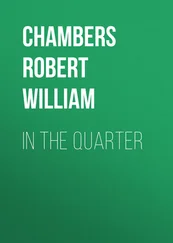Robert Chambers - The Maids of Paradise
Здесь есть возможность читать онлайн «Robert Chambers - The Maids of Paradise» — ознакомительный отрывок электронной книги совершенно бесплатно, а после прочтения отрывка купить полную версию. В некоторых случаях можно слушать аудио, скачать через торрент в формате fb2 и присутствует краткое содержание. Жанр: foreign_prose, на английском языке. Описание произведения, (предисловие) а так же отзывы посетителей доступны на портале библиотеки ЛибКат.
- Название:The Maids of Paradise
- Автор:
- Жанр:
- Год:неизвестен
- ISBN:нет данных
- Рейтинг книги:5 / 5. Голосов: 1
-
Избранное:Добавить в избранное
- Отзывы:
-
Ваша оценка:
- 100
- 1
- 2
- 3
- 4
- 5
The Maids of Paradise: краткое содержание, описание и аннотация
Предлагаем к чтению аннотацию, описание, краткое содержание или предисловие (зависит от того, что написал сам автор книги «The Maids of Paradise»). Если вы не нашли необходимую информацию о книге — напишите в комментариях, мы постараемся отыскать её.
The Maids of Paradise — читать онлайн ознакомительный отрывок
Ниже представлен текст книги, разбитый по страницам. Система сохранения места последней прочитанной страницы, позволяет с удобством читать онлайн бесплатно книгу «The Maids of Paradise», без необходимости каждый раз заново искать на чём Вы остановились. Поставьте закладку, и сможете в любой момент перейти на страницу, на которой закончили чтение.
Интервал:
Закладка:
“But we do not know why,” said Dr. Delmont, bending forward and pouring himself a glass of red wine. This he drank slowly, eating a bit of black bread with it.
“Monsieur Scarlett,” said Mademoiselle Elven, suddenly, “why does the government want John Buckhurst?”
“That, mademoiselle, is the affair of the government and of John Buckhurst,” I said.
“Pardon,” interrupted Delmont, heavily, “it is the affair of every honest man and woman – where a Bonaparte is concerned.”
“I do not understand you, doctor,” I said.
“Then I will put it brutally,” he replied. “We free people fear a family a prince of which is a common murderer.”
I did not answer; the world has long since judged the slayer of Victor Noir.
After a troubled silence the Countess asked me if I would not share their repast, and I thanked her and took some bread and grapes and a glass of red wine.
The sun had stolen into the corner where we had been sitting, and the Countess suggested that we move down to the lawn under the trees; so Dr. Delmont and Professor Tavernier lifted the table and bore it down the terrace steps, while I carried the chairs to the lawn.
It made me uncomfortable to play the rôle I was playing among these misguided but harmless people; that I showed it in my face is certain, for the Countess looked up at me and said, smilingly: “You must not look at us so sorrowfully, Monsieur Scarlett. It is we who pity you.”
And I replied, “Madame, you are generous,” and took my place among them and ate and drank with them in silence, listening to the breeze in the elms.
Mademoiselle Elven, in her peasant’s dress, rested her pretty arm across her chair and sighed.
“It is all very well not to resist violence,” she said, “but it seems to me that the world is going to run over us some day. Is there any harm in stepping out of the way, Dr. Delmont?”
The Countess laughed outright.
“Not at all,” she said. “But we must not attempt to box the world’s ears as we run. Must we, doctor?”
Turning her lovely, sun-burned face to me, she continued: “Is it not charming here? The quiet is absolute. It is always still. We are absurdly contented here; we have no servants, you see, and we all plough and harrow and sow and reap – not many acres, because we need little. It is one kind of life, quite harmless and passionless, monsieur. I have been raking hay this morning. It is so strange that the Emperor should be troubled by the silence of these quiet fields – ”
The distress in her eyes lasted only a moment; she turned and looked out across the green meadows, smiling to herself.
“At first when I came here from Paris,” she said, “I was at a loss to know what to do with all this land. I owe much happiness to Dr. Delmont, who suggested that the estate, except what we needed, might be loaned free to the people around us. It was an admirable thought; we have no longer any poor among us – ”
She stopped short and gave me a quick glance. “Please understand me, Monsieur Scarlett. I make no merit of giving what I cannot use. That would be absurd.”
“The world knows, madame, that you have given all you have,” I said.
“Then why is your miserable government sending her into exile?” broke in Monsieur Bazard, harshly.
“I will tell you,” I said, surprised at his tone and manner. “The colony at La Trappe is the head and centre of a party which abhors war, which refuses resistance, which aims, peacefully perhaps, at political and social annihilation. In time of peace this colony is not a menace; in time of war it is worse than a menace, monsieur.”
I turned to Dr. Delmont.
“With the German armies massing behind the forest borders yonder, it is unsafe for the government to leave you here at La Trappe, doctor. You are too neutral .”
“You mean that the government fears treason?” demanded the doctor, growing red.
“Yes,” I said, “if you insist.”
The Countess had turned to me in amazement.
“Treason!” she repeated, in an unsteady voice. “Is it treason for a small community to live quietly here in the Alsatian hills, harming nobody, asking nothing save freedom of thought? Is it treason for a woman of the world to renounce the world? Is it treason for her to live an unostentatious life and use her fortune to aid others to live? Treason! Monsieur, the word has an ugly ring to me. I am a soldier’s daughter!”
There was something touchingly illogical in the last words – this young apostle of peace naïvely displaying her credentials as though the mere word “soldier” covered everything.
“Your government insults us all,” said Bazard, between his teeth.
Mademoiselle Elven leaned forward, her blue eyes shining angrily.
“Because I have learned that the boundaries of nations are not the frontiers of human hearts, am I a traitor? Because I know no country but the world, no speech but the universal speech that one reads in a brother’s eyes, because I know no barriers, no boundaries, no limits to human brotherhood, am I a traitor?”
She made an exquisite gesture with half-open arms; all the poetry of the Théâtre Français was in it.
“Look at me! I had all that life could give, save freedom, and that I have now – freedom in thought, in speech, in action, freedom to love as friends love, freedom to love as lovers love. Ah, more! freedom from caste, from hate and envy and all suspicion, freedom to give, freedom to receive, freedom in life and in death! Am I a traitor? What do I betray? Shame on your Emperor!”
The young Countess, too, had risen in her earnestness and had laid one slender, sun-tanned hand upon the table.
“War?” she said. “What is this war to us? The Emperor? What is he to us? We who have set a watch on the world’s outer ramparts, guarding the white banner of universal brotherhood! What is this war to us!”
“Are you not a native of France?” I asked, bluntly.
“I am a native of the world, monsieur.”
“Do you mean to say that you care nothing for your own birthland?” I demanded, sharply.
“I love the world – all of it – every inch – and if France is part of the world, so is this Prussia that we are teaching our poor peasants to hate.”
“Madame,” said I, “the women of France to-day think differently. Our Creator did not make love of country a trite virtue, but a passion, and set it in our bodies along with our other passions. If in you it is absent, that concerns pathology, not the police!”
I did not mean to wound her – I was intensely in earnest; I wanted her to show just a single glimmer of sympathy for her own country. It seemed as though I could not endure to look at such a woman and know that the primal passion, born with those who had at least wept for their natal Eden, was meaningless to her.
She had turned a trifle pale; now she sank back into her chair, looking at me with those troubled gray eyes in which Heaven itself had set truth and loyalty.
I said: “I do not believe that you care nothing for France. Train and curb and crush your own heart as you will, you cannot drive out that splendid earth-born humanity which is part of us – else we had all been born in heaven!”
“Come,” said Bazard, in a rage-choked voice, “let it end here, Monsieur Scarlett. If the government sends you here as a spy and an official, pray remember that you are not also sent as a missionary.”
My ears began to burn. “That is true,” I said, looking at the Countess, whose face had become expressionless. “I ask your pardon for what I have said and … for what I am about to do.”
There was a silence. Then, in a low voice, I placed them under formal arrest, one by one, touching each lightly on the shoulder as prescribed by the code. And when I came to the Countess, she rose, without embarrassment. I moved my lips and stretched out my arm, barely touching her. I heard Bazard draw a deep breath. She was my prisoner.
Читать дальшеИнтервал:
Закладка:
Похожие книги на «The Maids of Paradise»
Представляем Вашему вниманию похожие книги на «The Maids of Paradise» списком для выбора. Мы отобрали схожую по названию и смыслу литературу в надежде предоставить читателям больше вариантов отыскать новые, интересные, ещё непрочитанные произведения.
Обсуждение, отзывы о книге «The Maids of Paradise» и просто собственные мнения читателей. Оставьте ваши комментарии, напишите, что Вы думаете о произведении, его смысле или главных героях. Укажите что конкретно понравилось, а что нет, и почему Вы так считаете.












